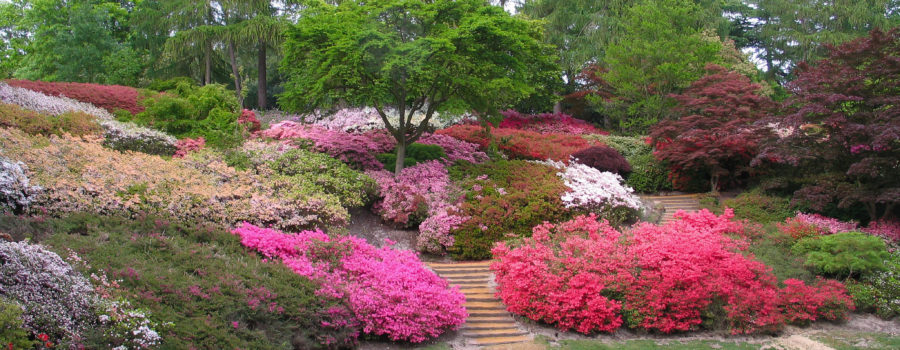God is working in us with creativity and perfectionism. His purpose is to produce in our heart and our mortal flesh (2 Cor. 4:11) the beauty of holiness (Psalm 29:2). For this very purpose He provides or allows propitious circumstances in view to sanctify and embellish our very character.
In comparing the believer to a garden set apart, i.e., to a paradise, God elevates us to sublime heights and challenges us to offer ourselves unconditionally to the creativity of the Gardener:
I beseech you therefore, brethren, by the mercies of God, that you present your bodies a living sacrifice, holy, acceptable to God, which is your reasonable service” (Rom. 12:1).
Here the sacrifice is practical. It is not a mere mystical heart that needs to be offered but our very body: “Sacrifice and offering You did not desire, but a body You have prepared for Me” (Hebrews 10:5).
What was essential to the life of Christ is essential to the Christian Life. Without the offering of our body the Gardener could only produce a sort of inorganic garden coming short of practicality and factuality. Such a product would be more lifeless than plastic flowers. There would be no fragrance and no life in it, no perfume and no incense. This is not what the Master intends.
The provision of Grace
As we have seen in the six previous posts God permits all sorts of circumstances to reach our life. There are times of dryness and times of wintery wind; times of rain and times of exceeding heat; times spent in the heights were the air is thin and times spent in the lowland or even in the valley of the shadow of death. God permits all these circumstances to provide the necessary conditions in which the garden can attain diversity and magnificence, a place honoring the skill of the Gardener and His sense of aesthetic. For never forget, holiness is exceedingly beautiful.
This is no mere poetic dream. Poetic it is in its deepest fiber, but it is a poem written on the paper of real life. It is practical and substantial. It can be heard and observed, palpated and scanted, appreciated and admired.
In spite of adversity
As lovely flowers meet your expectations in rain or shine, the lover blesses them that curse him, does good to them that hate him, and prays for them who despitefully use him (Matt. 5:44). He soars where many crash and thrives where many wilt. The fragrance of grace rests upon him, and this, in freezing northern gales as in soft southern breezes. This is truly beautiful.
As the Garden of Eden
If sin caused Adam and Eve to be cast out of Eden, Christ’s righteousness can restore Eden within our very hearts.
For the Lord will comfort Zion, He will comfort all her waste places; He will make her wilderness like Eden, and her desert like the garden of the Lord; joy and gladness will be found in it, thanksgiving and the voice of melody” (Isaiah 51:3).
This is God’s purpose: to walk with us in His garden; a garden furnished of all dazzling virtues where righteousness blooms together with humility, and where truthfulness embraces sincerity and love.
Something else about the lover
The lover is not only a garden enclosed, he is also a fountain of gardens, a well of living waters, and streams from Lebanon (Song of Solomon 4:15). He is prepared to water the gardens of the daughters of Jerusalem, for the lover loves and where love dwells there dwells the Spirit.
He who believes in Me, as the Scripture has said, out of his heart will flow rivers of living water.” But this He spoke concerning the Spirit …” (John 7:38,39).
This is as glorious as it is true. Where the Spirit dwells unquenched and nongrieved there are rivers of living water. “But the water that I shall give him will become in him a fountain of water springing up into everlasting life” (John 4:14).
As much as there can be no garden without soil, there can be no garden without water. The soil of our body and heart is needed as well as the water of the Spirit. He might come to us as a river to irrigate the calamus, or as gentle dew to provide moisture to the balsamodendron myrrha. In any case it is a manifestation of grace.
Some people despise the gentle dew of the Spirit, this gentle dropping which sustains life in times of lasting dryness.
Let my teaching drop as the rain, My speech distill as the dew, as raindrops on the tender herb, and as showers on the grass” (Deut. 32:2).
One thing is sure, without the Spirit’s daily ministration nothing could thrive or bloom. There would be no garden and no beauty but rather thorns and dead brambles.
If you think this post can help somebody else you can share it with the options presented bellow.













